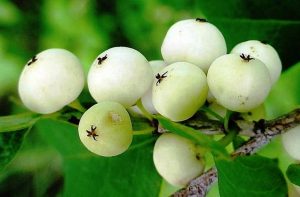Basella alba (Plant family Basellaceae) is an edible, fleshy, perennial, climbing creeper. Basella or vine spinach is a popular tropical leafy-green vegetable, commonly grown as a backyard herb in home gardens.
It is popularly known as Indian spinach, Malabar spinach or Country spinach. Vine-spinach has two chief cultivars; Basella alba, which features green-stems and deep-green leaves and Basella rubra with purplish stems and dark green leaves with pink veins.
The green leaves of Basella can be eaten raw or used as salad with a tinge of salt and lemon over it. Moreover, spinach can also be steamed or boiled and can be added to soups. The plant is rich in proteins, carbohydrates, minerals like Iron, Calcium and Vitamin A and C. In many communities in India, it is commonly used to treat and manage mouth ulcers, anaemia and dysentery.
Vine spinach leaves and stems are incredibly rich sources of vitamin A, required for maintaining healthy mucus membranes and the skin. In addition, just like other spinach, regular consumption of vine spinach is important for prevention of osteoporosis (weakness of bones) and iron-deficiency anaemia. Besides, it is believed to protect the body from cardiovascular diseases and cancers of the colon.
The vine spinach is loaded with lots of vitamin C that is a powerful antioxidant for the body to develop resistance against infectious agents and scavenge harmful oxygen-free radicals. It is also essential for good eyesight. The paste made from vine spinach roots is applied externally for treatment and management of rheumatic pain and swellings. Diarrhoea is treated by consuming the boiled roots. Beside the roots, vine spinach leaves are known to have laxative effects. Its leaves can be used for treating various conditions including dysentery.
The leaves and stems can be cooked and used to treat constipation. They are also used for treating boils and catarrh and ulcers. The mucilage present in vine spinach leaves is used for treatment and management of diabetes, gastro-intestinal disorders including ulcer healing.
The mucilage can also be applied to enhance wound healing. Wholly, an infusion of the leaves is prepared as a tea substitute. Externally, the mucilaginous leaf is crushed and applied to treat urticaria, burns and scalds. In some communities, the flowers of vine spinach are used as an antidote against snakebites, scorpion bites and insect bites.
Vine spinach is very rich in folate; a vital vitamin required for a healthy pregnancy. In fact, the decoction of vine spinach leaves is recommended as a safe laxative in pregnant women and children. Moreover, its leaves decoction is given to expectant women to reduce labour pains.
Consumption of natural vegetables and fruits rich in vitamin-A and flavonoids has been thought to offer protection from the lung and oral cavity cancers. However, always remember that no single fruit or vegetable provides all of the nutrients you need to be healthy. Eat varieties of it every day!
(R.K.)






